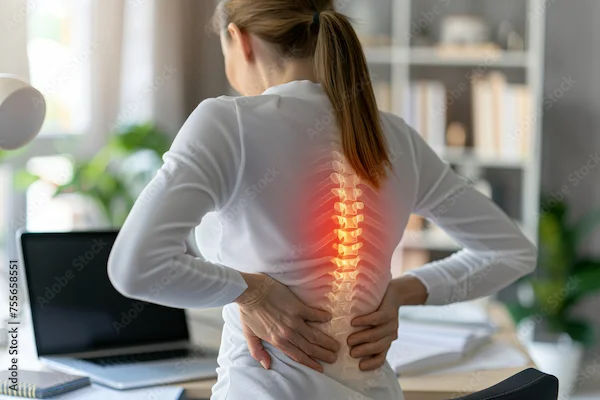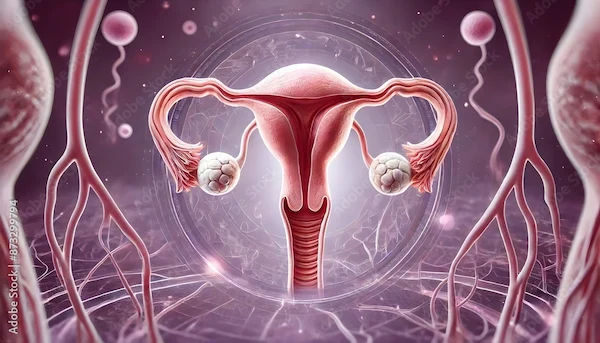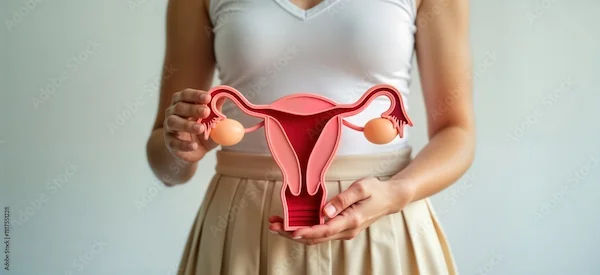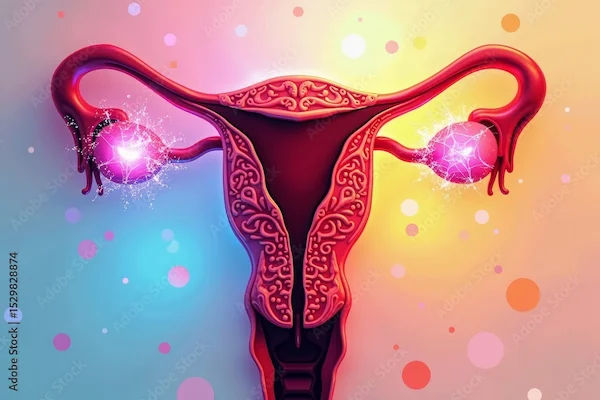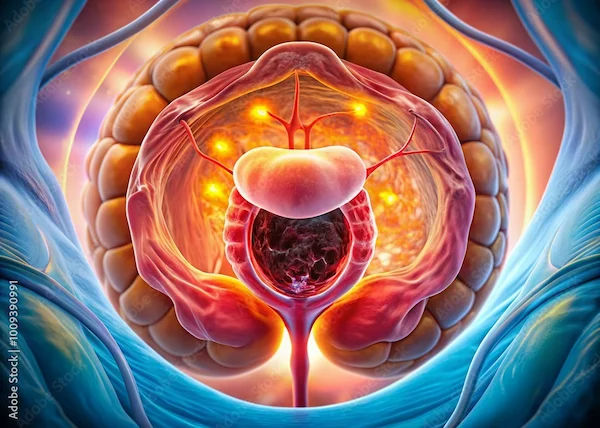How To Heal From Nerve Damage After Hysterectomy Surgery?
Nerve damage after hysterectomy surgery can cause discomfort and other symptoms. Discover effective treatments, rehabilitation techniques, and self-care tips to support healing and improve nerve function post-surgery.

Written by Dr.Sonia Bhatt
Last updated on 6th Jul, 2025

Introduction
Undergoing a hysterectomy—a surgery to remove the uterus—can be a life-changing experience. While many women recover smoothly, some may experience nerve damage, leading to discomfort, numbness, or pain. If you're dealing with nerve-related issues after your surgery, know that healing is possible with the right care and patience. This article will guide you through understanding, managing, and recovering from nerve damage after a hysterectomy.
Understanding Nerve Damage After Hysterectomy
Nerve damage after hysterectomy can occur due to pressure, stretching, or accidental injury to nerves during the procedure. The most commonly affected nerves are in the pelvic region, leading to symptoms like:
Burning or shooting pain in the lower abdomen, groin, or legs
Numbness or tingling in the pelvic area or thighs
Muscle weakness in the legs
Increased sensitivity to touch
These symptoms can be distressing, but the good news is that nerves can heal over time with proper care.
Causes of Nerve Damage Post-Hysterectomy
Here are some common causes of nerve damage following a hysterectomy:
1. Surgical Trauma: During surgery, nerves may get compressed, stretched, or accidentally nicked.
2. Scar Tissue Formation: Post-surgery, scar tissue can press on nerves, causing irritation.
3. Inflammation: Swelling after surgery may temporarily affect nerve function.
4. Prolonged Positioning: Staying in one position for too long during surgery can sometimes lead to nerve compression.
To Know More Causes Consult Top Gynaecologists
How Long Does Nerve Damage Take to Heal?
Nerve healing is a slow process. Some women notice improvement within weeks, while others may take months or even up to a year. The recovery timeline depends on:
Severity of the damage
Overall health
Rehabilitation efforts
Tips to Promote Nerve Healing
Here are some tips to promote nerve healing:
1. Gentle Movement & Physical Therapy
Avoid prolonged sitting or standing to reduce pressure on nerves.
Engage in low-impact exercises like walking, swimming, or yoga to improve blood flow.
A pelvic floor physical therapist can guide you through exercises to strengthen muscles and relieve nerve compression.
2. Pain Management Strategies
Heat or Ice Therapy: Applying a warm compress can relax muscles, while ice helps reduce inflammation.
Over-the-counter pain relievers (like ibuprofen) may help, but consult your doctor first.
Topical creams (containing capsaicin or lidocaine) can provide localised relief.
3. Nutrition for Nerve Repair
Vitamin B12 & B-Complex: Essential for nerve regeneration (found in eggs, fish, and fortified cereals).
Omega-3 Fatty Acids: Reduce inflammation (found in flaxseeds, walnuts, and fatty fish).
Magnesium: Supports nerve function (found in leafy greens, nuts, and whole grains).
4. Mind-Body Techniques
Meditation & Deep Breathing: Helps manage pain and stress.
Acupuncture: Some women find relief through this traditional therapy.
5. Avoiding Aggravating Factors
Tight clothing or belts that press on the pelvic area.
Heavy lifting or strenuous activities in the first few months.
When to Seek Medical Help?
While most nerve damage improves with time, consult your doctor if you experience:
Severe, worsening pain
Loss of bladder or bowel control
Significant muscle weakness
Your doctor may recommend:
Nerve conduction studies to assess damage.
Prescription medications (like gabapentin) for nerve pain.
Referral to a specialist (neurologist or pain management expert).
Conclusion
Recovering from nerve damage after a hysterectomy requires patience and self-care. With the right approach—gentle movement, proper nutrition, and medical support—you can regain comfort and function. Remember, healing is a journey, and you’re not alone.
If you're experiencing persistent symptoms, consider booking a consultation with a specialist through Apollo24|7 for personalised care.
Consult Top Gynaecologists
To Know More Causes Consult Top Gynaecologists

Dr. Priyanka Surisetty
Obstetrician and Gynaecologist
8 Years • MBBS, DGO
Visakhapatnam
Apollo 24|7 Clinic - Andhra Pradesh, Visakhapatnam
(150+ Patients)

Dr. Shailaja L
Obstetrician and Gynaecologist
16 Years • MBBS, MS
Bangalore
Apollo 24|7 Clinic - Karnataka, Bangalore

Dr. Alapati Jyotsna
Obstetrician and Gynaecologist
4 Years • MBBS MS Obstetrics and Gynaecology
Visakhapatnam
Apollo 24|7 Clinic - Andhra Pradesh, Visakhapatnam
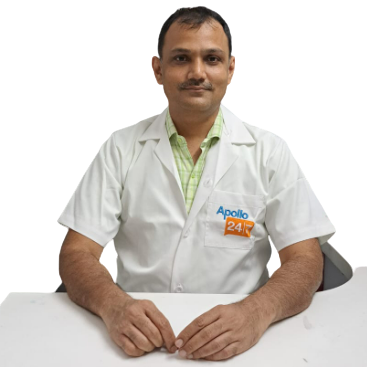
Dr. Abhishek Daga
Obstetrician and Gynaecologist
20 Years • MBBS, MS (Obstetrics & Gynaecology)
Kolkata
Gynae Care Fertility Centre, Kolkata
(150+ Patients)

Dr. Pooja Sahu
Obstetrician and Gynaecologist
8 Years • MBBS, MS (Obstetrics & Gynaecology)
Jajpur
satyapriya sahoo, Jajpur
Consult Top Gynaecologists

Dr. Priyanka Surisetty
Obstetrician and Gynaecologist
8 Years • MBBS, DGO
Visakhapatnam
Apollo 24|7 Clinic - Andhra Pradesh, Visakhapatnam
(150+ Patients)

Dr. Shailaja L
Obstetrician and Gynaecologist
16 Years • MBBS, MS
Bangalore
Apollo 24|7 Clinic - Karnataka, Bangalore

Dr. Alapati Jyotsna
Obstetrician and Gynaecologist
4 Years • MBBS MS Obstetrics and Gynaecology
Visakhapatnam
Apollo 24|7 Clinic - Andhra Pradesh, Visakhapatnam

Dr. Abhishek Daga
Obstetrician and Gynaecologist
20 Years • MBBS, MS (Obstetrics & Gynaecology)
Kolkata
Gynae Care Fertility Centre, Kolkata
(150+ Patients)

Dr. Pooja Sahu
Obstetrician and Gynaecologist
8 Years • MBBS, MS (Obstetrics & Gynaecology)
Jajpur
satyapriya sahoo, Jajpur
